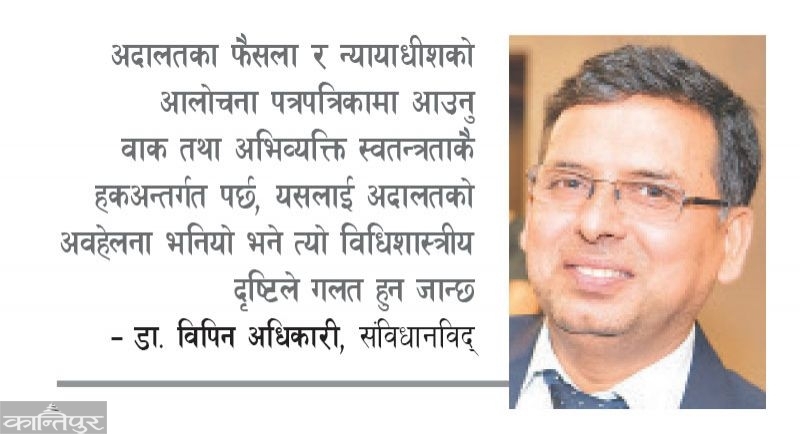Left alliance leaders have threatened to revoke some decisions taken by the erstwhile Sher Bahadur Deuba-led government saying they violate the conventions of a caretaker government.
Policy decisions and those committing new government should be avoided
There apparently is no legal restriction on what a caretaker government can do. However, constitutional experts say a caretaker government should avoid making policy decisions and decisions that could commit the new government.
Senior Advocate Surya Dhungel said a caretaker government, by convention, was bound to limit its activities to election and day-to-day administration. “An outgoing government should not increase allowances or nominate people to the Upper House of the Parliament,” he said. Dhungel said parliamentary conventions did not allow a caretaker government to do anything that could influence elections.
Senior Advocate Bipin Adhikari said avoiding policy decisions was a matter of constitutional convention for a caretaker government, not a written code. “The powers of caretaker governments are limited because there is no Parliament to oversee the government,” he said, adding, if a caretaker government has to take a major decision, it should take political forces into confidence. He said if a caretaker government was allowed to do anything, then the ruling parties could misuse the government to gain electoral advantage and they could try to reduce the strength of opposition parties in the polls.
He said written code on what a caretaker government should not do, could go against the principle of flexibility associated with caretaker conventions and that was why many countries opted against codifying conventions related to caretaker government.
Senior Advocate Chandra Kanta Gyawali said, “The Deuba government’s decision to lower the age of eligibility for senior citizens’ pension from 70 to 65 was wrong because that proposed to change a law.”He added that the Deuba government’s decisions, including appointments and transfers not related to election could be subject to judicial review.”
General Secretary of Nepal Bar Association Khamma Bahadur Khati and former president of Democratic Lawyers Association Yadunath Khanal, however, said there was no legal restriction on a caretaker government. They argued that it was only a convention that a caretaker government should not take decisions that would have far-reaching implications. Khanal said he did not believe Deuba’s government had violated caretaker conventions.
Khati said if the president had not endorsed the three National Assembly nominees sent by Deuba’s government then that would have been unconstitutional. “The political system will collapse if one government revokes the decisions of a past government,” he added.
Khanal said the UML which had criticised the Deuba government’s decision, had itself violated the norm when its Chair KP Sharma Oli became prime minister without taking oath of office and secrecy as a lawmaker first. He said the UML’s threat to revoke Deuba government’s decision was against rule of law. “If they revoke the Deuba government’s decision and appoint their own people in government organs that can create instability,” he said, adding that the Supreme Court had set a precedent clearly stating that the tenure of those appointees could not be annulled.
“Had the Deuba government not appointed governors, the new provincial governments could not have been formed,” he added.
Lawyers are also divided on when Deuba’s government was reduced to caretaker status.

